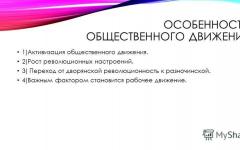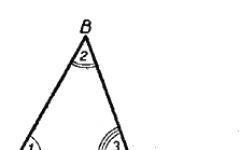, English, Spanish, Arabic and Russian. It originated, like all other Romance languages, from folk Latin. Surprisingly, the Portuguese language in our country is still considered an exotic language. The number of people learning Portuguese is much lower compared to those learning English, German, French or Spanish. Lingust decided to correct this situation by giving you the opportunity to get acquainted with this language.
Currently, the Portuguese language exists in two main varieties - European and Brazilian, which differ in phonetics and vocabulary. In the tutorial presented on the website Fatima and Uwe Brauer() presented European version of Portuguese, however, the features of the Brazilian version are noted in the pronunciation lesson and a separate lesson is also devoted to them, as well as five voiced texts, perhaps later there will be more texts in Brazilian.
Go to -› list of lessons ‹- (Click)
Reasons to learn Portuguese
- Want a good reason to learn Portuguese? Why don't you like the phrase "sixth place" at the very beginning of the page? This is more than 240 million people, which is approximately 2.5 times more than those who speak German, and almost 2 times more speakers French. And these 2 languages are the most popular in the whole world, not counting English.
- Get to know Portugal and its capital, Lisbon, one of the oldest cities in the world and one of the most convenient for living. Taste the famous Portuguese port wine. Take your first surfing lessons, as this is the center of the European surf movement. Visit torada - a bullfight in which the animal is knocked to the ground with almost bare hands. Listen to Fado - the music of the Portuguese soul. And much more.
- Of course, Brazil, the largest Portuguese-speaking country, with its special attractive image of rhythm and color, with its vast beaches, tropical forests, exotic plants and wildlife, resonating music, dance, football, etc. While studying the lessons on the site, start listening to Brazilian speech , and in the end you will understand both versions of the Portuguese language, because for the most part the difference is only in some sounds, and you can get used to them.
- Besides Paulo Coelho, how many writers do you know? (writing in Portuguese) And there are many of them, and you need to know about them. Luis de Camões, for example. His poem "The Lusiads" is a true national epic. Comoens has been compared to Dante, Virgil and Shakespeare. Jose Maria Esa de Queiroz: his novels enjoyed pan-European success; Emile Zola put him above G. Flaubert. But how much do these names tell you? There are many other great Portuguese writers: Camilou Castelo Branco ("Portuguese Balzac"), Fernando Pessoa, Jose Saramago, Jorge Amado, Joaquin Maria Machado de Assis, Carlos Drummond de Andrade and others.
- Music is a great motivation for learning a language. Folk music Fado ( meaning fate) plays important role in the national self-identification of the Portuguese, as it draws a clear line between the bright and lively Spanish rhythms, representing the exuberant and harsh Spanish character, and the soft and melancholy soul of the Portuguese people. Brazilian samba harmoniously combines music, singing and dance. In the 30s of the 20th century, samba became an exponent of the spirit of the Rio de Janeiro carnival, later, in the 40s, it received worldwide recognition and acquired the status of a symbol of the national identity of Brazil.
- Perhaps you are a challenger. You could have just taken up Spanish, it’s easier. Portuguese has much more complex phonetics and slightly more complex grammar. But there is an opinion that by learning Portuguese, you will be able to understand a little Spanish (Castilian); Having studied Spanish, you will not be able to understand Portuguese. It turns out that once you learn one language, you get the second one as a gift. This is, of course, a joke, but there is some truth in it.
- Why are you teaching?
If you dream of living in Brazil or simply by coincidence you were brought to these paradise lands, you should think about learning Portuguese, since it is difficult to communicate in other dialects here. I myself, when I started learning Portuguese many years ago, did so solely because it was spoken in Brazil, but as I learned, I became very fond of the language and it began to be of great value to me in its own right.
Learning Portuguese is a task that requires a lot of time and effort. Is it a difficult language? I wouldn't say it's difficult: English was more difficult for me, although most Brazilians I know find Portuguese more difficult than English. Therefore, the conclusion is: the complexity of a language is a subjective matter. If you really love the Portuguese language and study it day and night, it will not seem boring or difficult.
The volume of the program is so large that the question arises: where to start? Which textbooks are best to study with? For beginners learning Portuguese, I can recommend Maria Fernanda Allen’s textbook “Portuguese in Three Months.” Of course, no one learns a language in three months, so I don’t pay attention to the name. The good thing about the textbook is that it provides an initial basis for starting to study the Brazilian version of the Portuguese language using Brazilian textbooks for foreigners (not adapted for Russian audiences). While studying this textbook, do not pay attention to the “simulated pronunciation” system, because 90% of the transcriptions given there do not correspond to reality. Please note that this textbook provides continental Portuguese, with notes on Brazilian differences. But I think that this is by no means a minus, and then you will still get credit for it, since you cannot completely ignore the European version either.
AT THE SAME TIME with this textbook, I strongly recommend studying the Brazilian version of the language on the Internet: listening to Brazilian radio, Brazilian music , corresponding with Brazilians on social networks.
After a year of studying this textbook, you can begin the Brazilian version itself. The course starts from the very beginning, but you already have a base that you will improve. The recommended textbook is “Falar. Ler. Escrever." (Livro-texto), as well as the book of exercises that comes with it (Livro de exercícios), and CDs for phonetic exercises. It is recommended to study Portuguese every day for at least 3 hours, dividing the days evenly between:
- classes using a basic textbook and a book of exercises (3-4 days);
- phonetic exercises (1-2 days);
- reading Brazilian literature in the original (1 day);
- watching Brazilian films, series and TV shows (2 days);
- communicating with Brazilians on the Internet;
- regional studies and the study of the culture, history and geography of Brazil;
- visiting Russian forums and Internet resources dedicated to Portuguese language.
After completing this tutorial (about 2 years), you are considered to be proficient. basic level Portuguese language. Then it will simply need to be improved without textbooks: by reading the press, scientific literature, specialized literature, fiction etc.
You can also take the MGIMO textbook for students studying Portuguese as a second language as reinforcement. But it is also worth keeping in mind that it is focused on the continental version.
Read the blog, ask any questions about the Portuguese language, grammar, vocabulary, etc., I will always answer and be happy to discuss.
Good luck and welcome to the fabulous world of the Portuguese language!
A world that opens up for Portuguese language learners: Brazil, Portugal, Angola, Mozambique, Cape Verde, Sao Tome and Principe, East Timor, Guinea-Bissau
Portuguese is a Romance language and is considered the heir to the much respected and ancient Latin. Linguists who have compared grammar say that Portuguese is very similar to other Romance languages Spanish, Italian and French.
It is believed that about 200 million people in the world speak Portuguese, this official language Portugal, Brazil, Angola, Mozambique and some other former Portuguese colonies.
All Courses Com has collected free sites with which you can learn Polish independently via the Internet.
A blog in Portuguese for those who want to improve their Portuguese grammar. The site, in a simple and understandable, and most importantly – brief and interesting form, talks about the intricacies of punctuation, the differences similar words and similar subtleties.
- basic course Portuguese for those who know English. The site presents the basics of the language in a simple and accessible form, which are accompanied by high-quality listening.A language marathon, the organizers of which claim that in 12 weeks students will be able to significantly improve their level of Portuguese language proficiency. You can learn more than just Portuguese.
Russian-Portuguese dictionary that will help in difficult moments of learning. A convenient table of contents and site search will help you quickly find the right word.
- site-cheat sheet for conjugating verbs online. Concise explanations of this or that nuance are given in Portuguese. Detailed grammar is included.
- a VKontakte page that will help you learn the language and relax at the same time, because here there are many educational materials there are Portuguese TV series. In particular, European Portuguese is covered in detail.
- lyrics of Portuguese songs. Here you can find the lyrics to your favorite song and understand its meaning, and perhaps also find other interesting songs. Music is also a good help in learning a language - you can download it to your player and listen to it on the way to school or work, at the same time improving your listening skills and getting used to the language.
- films in Portuguese, with subtitles. Expert advice: do not focus only on reading the subtitles for the characters, but first listen to the phrase and try to understand its meaning yourself.
youtube.com– a channel with many lessons for beginner and advanced users. There are no subtitles, but the illustrations explain this or that meaning in an accessible form. Here you can improve both your grammar and your vocabulary.
A site with a lot of information on learning a language, you can find videos with subtitles. A treasure trove of grammar information, text and video lessons. Resource for those in the know English language.
Radio in Portuguese will help you improve your language and get used to its features, for example, the speed of pronunciation. There are 161 radio stations in Portuguese available for the most discerning choice.
- explanatory dictionary Portuguese terms. It will be convenient to use from a desktop computer, tablet, or mobile phone.
- spelling dictionary Portuguese words. Convenient navigation on the site. On the main page you can find a list of the most requested words. There are translations of words into English, French, German, Italian.
An explanatory dictionary of Portuguese phrases that will help with the explanation of local terms. For each word, several usage options are given. Each option is voiced in audio format.
– literature in Portuguese for every taste and genre. Books can be downloaded to your computer in PDF format. If you are starting to learn a language, it is advisable to choose those books whose meaning you are approximately familiar with.
- useful words which you need to remember first. Grammar, culture and many other topics are covered. On the site you can learn about the differences between European and Brazilian Portuguese, many useful resources to help language learners.
– contains several courses on studying European and Brazilian Portuguese. Suitable for beginner and advanced users. In addition, the site offers high-quality training in many other languages.
- online radio that can be downloaded to your phone or tablet. You can also listen from a personal computer. The resource will help you immerse yourself in the atmosphere of the Portuguese language and get used to it, which will speed up the learning process.
- Books on the Portuguese language by year
Below you can download for free e-books and textbooks and read articles and lessons for the section Books on the Portuguese language:
Section Contents
Description of the section “Books on the Portuguese language”
In this section, we provide you with free download Books on the Portuguese language. Portuguese is a language of the Romance group of the Indo-European family of languages. Developed from the medieval Galician-Portuguese language. Writing based on the Latin alphabet. It is the second most widely spoken Romance language after the closely related Spanish and one of the most widely spoken languages in the world.Portuguese speakers are grouped under the umbrella term Lusophones, named after the Roman province of Lusitania, roughly corresponding to the territory of modern Portugal, and the totality of Portuguese-speaking territories is Lusophonia.
In addition to books, the site has Portuguese audio courses. We highly recommend the book “Visa to Portugal - Audio Course of the Portuguese Language”. The book contains more than 400 necessary words, phrases, and expressions. All everyday topics, from greetings and words of politeness to questions that will help you not get lost in an unfamiliar city, find right place, check in at a hotel, explain yourself at a restaurant or store.
Also includes sections on meetings, dating and nightlife.
From books you will learn that Portuguese writing is based on the Latin alphabet, with a number of diacritics. The principle of “as you hear is how you write” is observed less consistently in Portuguese than in Spanish, which is why Portuguese is somewhat more difficult to learn.
You can also download Portuguese language tutorials. The tutorials are very easy to learn. The material will contain words first in Russian, then in Portuguese with transcription. For a better understanding of diction, listen to the pronunciation in audio files.
You may have already heard that the Portuguese language has many accents and dialects. Differences in pronunciation, accent, different meanings of the same words and expressions, slang vocabulary and other differences - all this makes up a wide palette general concept about the Portuguese language.
In order not to stray too far from the topic, I will say that here we will get acquainted with one of the types of Portuguese - this is the Brazilian version.
Roughly speaking, this is ordinary Portuguese, but if you dig a little deeper, they will immediately become visible distinctive features from Portuguese Lisbon or, for example, Portuguese from Cabo Verde (Cape Verde Island), Mozambique or Angola.
Where should a beginner start learning Portuguese without leaving home?
The wise man will not go uphill. The wise man will go around the mountain.
This question worries everyone who has set out to learn Portuguese, or as many people call it, the Brazilian language.
Where to start you ask?
Start with small steps, simple and easy to follow, which will not seem to you like any kind of violence against yourself.
If you are used to making an action plan, then this can be very useful. And if not, then together we will slowly go in the right direction, as in the saying “The slower you go, the further you will go.”
If you are used to moving quickly and this proverb is not about you, then there is another option for turbo speed of moving towards your dream. This path is much faster and more intense and the result will appear much earlier. Which road you prefer is up to you. And I reserve only voluntary assistance, which I want to give to those who sincerely want to learn Portuguese, and not just talk about what they “want”.
Where should a beginner who has just come up with an idea start? self-study Portuguese, you don't have to go far. All you need is the Internet, a pen, paper, as well as diligent effort, strong zeal, persistent determination and great desire!
Brazilian slang. Issue 1: swearing and obscenities
They say that in order to know the mentality of the people and their soul, you need to look into such dark side language as swear words and swear words. I think this is absolutely true.
Based on the rich palette of swear words, one can draw conclusions about how bright, emotional and versatile people of a certain nationality are.
Brazil - best example. The huge number of words they use to scold each other goes beyond the 130 mark! and by the way this is not the limit.
The first report on Brazilian slang has already been published. .







